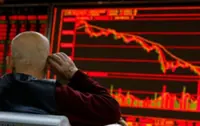LONDON: Oil traders have become much more sanguine about the availability of crude over the last month, taking some of the heat out of oil prices following Russia’s invasion of Ukraine.
On the consumption side, China’s fuel use has faltered as more areas have been put into lockdown to control coronavirus outbreaks, and there have been early signs of a cyclical downturn in the United States and Europe.





